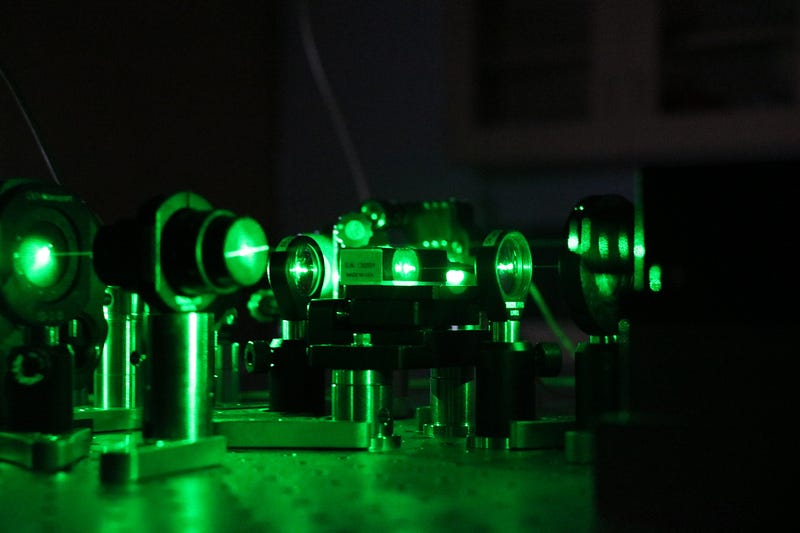Recently, UW-Madison has invested more than six million dollars in quantum science. According to professor Shimon Kolkowitz, this field has a very promising future, and this investment can help UW-Madison stay at the forefront of quantum research.

The application of quantum physics in different fields is becoming increasingly popular. From tech companies, such as IBM and Google, to the federal government, quantum computing has attracted investments from many sectors due to its vast potential applications. Currently researching quantum technology, UW-Madison physics professor Shimon Kolkowitz tells that this specific field — quantum computing — can lead to some great developments in pharmacy, data encryption, and material science.
Kolkowitz points out that the computers we currently use are based on classical physics, but the quantum computers that scientists are trying to build are based on quantum physics, which will use qubits rather than classical bits to perform computing. “Classical computers fundamentally are bad at simulating quantum systems,” states Kolkowitz. Thus, quantum computers, which are designed with the principles of quantum physics such as entanglement and superposition, can simulate those systems and can be applied to engineering problems such as the investigation of chemical reactions and the development of new materials.
Currently, the UW-Madison physics department has invested in quantum research fields such as qubits and quantum sensing. Professor Mark Eriksson is working on developing ways to build quantum computers using semiconductor quantum dots. This can potentially enable existing classical computer manufacturers to build quantum computers. Professor Robert McDermott is researching superconducting qubits, the platform currently favored by industry in the attempt to build quantum computers, with the goal of tackling some of this kind of qubit’s limitations. Professor Mark Saffman is attempting to use neutral atom qubits to perform quantum computing, which will be realized by an array of individual neutral atom qubits trapped in a lattice of light. This technique is like the one Kolkowitz is using in his research on quantum sensing. Kolkowitz is currently developing a precise atomic clock to perform the sensing. He expects the clock to be so sensitive to the environment that it could one day be useful as a precise sensor to detect gravitational waves.
UW-Madison recently joined the Chicago Quantum Exchange (CQE), solidifying the university’s position at the forefront of quantum research. Joining this organization of universities including the University of Chicago, University of Illinois Urbana-Champaign, and Northwestern, along with national labs — Argonne and Fermilab — will provide UW researchers with opportunities to collaborate for more breakthroughs and the exchange of research experiences. This organization can also attract funding and industry partners, which can strengthen UW’s leadership of research in this field. Kolkowitz comments that UW students will benefit from the CQE as well, since there will be more academic workshops, seminars, and conferences associated with this organization. Additionally, “there will be internship opportunities with the industry partners,” Kolkowitz notes.
Due to the tremendous promise of this field, the university is also investing in training more quantum scientists and engineers. In addition to the benefits that CQE can bring to current students, the Department of Physics will be the first in the country to offer a master’s degree in quantum computing. This particular program will be designed to train the quantum workforce of the next generation.
Kolkowitz hopes to spark more interest in quantum science by participating in the Wonders of Physics, an educational program started by Emeritus professor Clinton Sprott. The program features demonstrations of various physics phenomena that are especially designed for children and youth. Since the program mainly gives demonstrations of classical physics, quantum science is not addressed very much. Therefore, Kolkowitz hopes to add some of the quantum physics demonstrations to showcase this counterintuitive knowledge in quantum science so that children can learn that there is an exciting, nontraditional part of the world that is yet to be explored.
